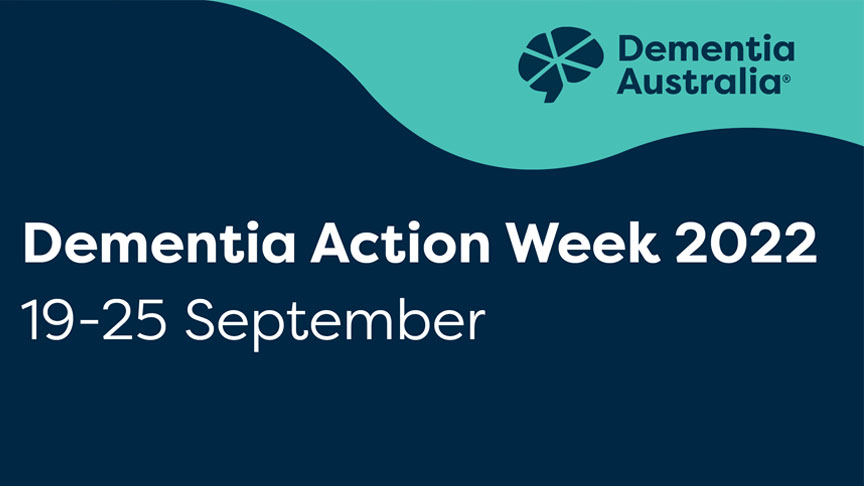
For people living with dementia, a hospital stay can be confusing and distressing and may exacerbate their symptoms.
Sunshine Coast Hospital and Health Service (SCHHS) is countering cognitive and functional decline by helping prevent delirium in patients via the Eat Walk Engage program. This is especially important for patients living with dementia.
This Dementia Action Week 2022 (19–25 September), the theme ‘A little support makes a big difference’ demonstrates that many people living with dementia can continue to live well for many years after their diagnosis.
An estimated 487,500 Australians live with dementia and that number is set to double in the next 25 years.
SCHHS Senior Medical Officer Geriatrics, Dr Christine Fawcett, said people with dementia had a higher risk of experiencing delirium when in the unfamiliar hospital environment.
“Delirium is a sudden change in brain function that means a person may appear confused or have trouble focusing,” she said.
“It affects one-in-three older inpatients, and people with dementia are particularly susceptible because they already have some level of cognitive impairment.
“There is currently no drug that treats or prevents delirium,” Dr Fawcett said.
The Eat Walk Engage program was developed at the Royal Brisbane and Women’s Hospital and has been found to decrease the development of delirium by 47 per cent using non-pharmacological interventions.
“Our Eat Walk Engage facilitators work with care teams and patients to tailor activities appropriate to the interests and abilities of each patient focusing on optimising nutrition, mobility and engaging socially and mentally,” Dr Fawcett said.
“For some patients this may be joining a dance or yoga group; for others it may be spending time with a therapy dog, attending a morning tea or listening to children from the local childcare centre sing on the ward.
“We assist older patients to move about the wards to view artwork and other displays, and to go into sunrooms where they can do puzzles, play boardgames or just enjoy the sunshine and views.
“We see first-hand the benefits of the Eat Walk Engage program. In the words of one of our patients, ‘Independence is the last line of defence for an old person, their whole self-esteem relies on it as they age. Being able to at least shuffle around an area gives a sense of happiness and achievement.”
For more information visit dementia.org.au.
Dementia risk reduction
Dementia can happen to anybody, but it is more common after the age of 65. It is the second leading cause of death of Australians and the leading cause of death of women.
While we cannot change getting older, genetics or family history, scientific research suggests that changing certain health and lifestyle habits may make a big difference to reducing or delaying your risk of developing dementia. The World Health Organisation has 12 recommendations for reducing risk for cognitive decline:
- be physically active
- stop smoking
- eat a balanced diet, like the Mediterranean diet
- drink alcohol in moderation
- cognitive training
- be socially active
- look after your weight
- manage any hypertension
- manage any diabetes
- manage any cholesterol
- manage depression
- look after your hearing and manage hearing loss.